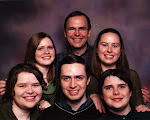What’s the difference between 1+1+1+1+1 and 1+2+4+8+16? Apart from the obvious numerical outcome, this also shows the difference between planting churches and a church planting movement (CPM). In the past, we missionaries worked to plant churches, one at a time. Now, our goal is to train Filipinos to plant churches that multiply.
So how do we do that? Basically, we go back to the simple, Biblical model of a church. They met in homes, not church buildings. Most were led my local, non-paid leaders. Their house churches were absent many of our present day programs and traditions. Worship was done in a small group where everyone participated. Every member was considered a minister, “saints” in Christ, and expected to “go and make disciples of all people.”
In recent years, experience has proven that when we take away our ecclesiastical western add-ons, a simplified church can multiply rapidly. We see it happening in countries like China, India, and many others. We are praying to see it happen here in the Philippines. It’s not that our western traditions are bad. Not at all. They have served us well in the U.S. and other places that have the resources to afford them. But economic and social realities in most third-world countries require us to simply the church so that it can easily reproduce.
We saw it happen with Danny. Danny planted a house church near his home in Lambunao. One of his members, Mary, started a church in her house with her family and neighbors. One of the neighbors has recently started evangelizing a new house group among her relatives that we pray will become a house church (when most of the members are baptized). In a few cases, we have seen the wonderful effects of multiplying churches. However, it’s not the norm, and it’s part of my job to find out why.
Every culture is unique, and it’s the task of the missionary to discover the best way to communicate the gospel in the context of a culture’s worldview. For example, Filipinos often relate to others based on their social status. Although the Philippines is not entrapped in a caste system like India, neither does it enjoy the freedom of equality that we aim for in the U.S. In the Philippines, a person’s title, such as “Honorable”, “Doctor”, “Sir”, “Attorney”, “Manang”, and “Kuya” identifies his status.
When me or one of my team members goes into a new area and starts a new group, they give us the title, “Pastor.” That title gives us the authority, in their thinking, to teach the Bible and lead a church. After a few months, when we encourage each of them to start their own house church among their family and friends, they balk. In their thinking, they don’t have the status to lead. They are embarrassed to take a title because their education level is usually quite low. So what do we do?
Our solution is to take away our own title. It’s interesting to note that, in the New Testament, the word ‘pastor’ only occurs one time, and there it describes a function, not a title. New Testament believers referred to each other as “Brother” or “Sister”, as a way of expressing their membership in God’s family. So, we are starting a “Call me Bro.” campaign in which we educate our fellow believers to see us as equal with them in terms of our calling to be ministers and carriers of the gospel of Jesus Christ.
You don’t have to be a ‘pastor’ to start a church. Anyone can. Obedience to the Lord is primary; knowledge is secondary. Pray with us that we will continue to identify and break down cultural barriers to the gospel so God’s church can multiply rapidly here in the Philippines.
Subscribe to:
Post Comments (Atom)




































No comments:
Post a Comment